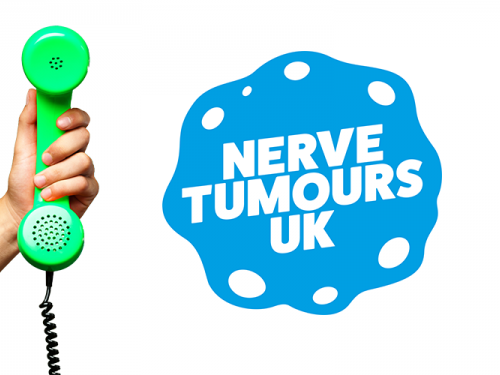Advice for Students with NF1, NF2-Schwannomatosis, and Schwannomotosis
08 October 2024
Karene Edme, Clinical Psychologist
_1024_768_s_c1.png)
Karine is a Clinical Psychologist with the NF2-related Schwannomatosis specialist service in Addenbrookes Cambridge University Hospital (one of 4 centres in the UK). Covering also the areas of Birmingham, Nottingham and Leicester. Karine has been in Addenbrookes for 7 years and 4 with the NF2 team.
–"University life can be an exciting and fulfilling phase, but can also be stressful at times, so attending to your health and psychological well-being will be paramount"
Starting university is a time full of excitement and uncertainty for everyone in this new phase of life. You might be preparing to live away from home and your parents, in a new town and might be wondering about making friends and developing your social life.
For students with a lifelong health condition such as NF, it also brings many other important questions. These could range from ensuring you chose a course that will accommodate aspects of your NF; thinking about the ways to talk to your new peers, teachers and friends about your condition, incorporating your treatments into your busy university life, ensuring adaptations are made to your studying environment if required. As NF varies greatly in its expression for each individual, its impact on new students can range from yearly monitoring with no or minimal symptoms, or active regular treatments, or acquired disability (hearing/ sight/ mobility). University life can be an exciting and fulfilling phase, but can also be stressful at times, so attending to your health and psychological well-being will be paramount.
Here are some key points to consider:
- Share with others and educate them about your NF Although it might not be what you want to talk about with your new friends, we know that it can be helpful if friends know about your health. Friends may also tell you important aspects of their ownhealth and personal lives, so you can be supportive and also feel supported and heard.
- Stay connected to others You might find it hard to fit in with your peers as their preoccupations or points of interest might at first seem very far away from your own, or you might not be able to participate with them. Your health is an important part of you, but give your friends a chance to get to know your personality, humour, interests too and you will find your crowd.
- Student support service It is important that you contact them and let them know about your NF, so they can support you if you need to speak with someone about your feelings, need more time, have to reschedule a test, or request the extension of a deadline. Looking after yourself is important throughout your NF care journey, and your clinical team can help liaise with your University to make reasonable adjustments or adaptations that can support your learning and your life at university.
- Wellbeing and mental health at University Most young people cope well at University, but it is important to get timely help if you are experiencing anxiety or low mood and need support. University students often tell us that adapting to changes and coping with big feelings are part of their learning to function as independent adults. Your mental state affects your ability to engage with the world around you, the way you think and feel, as well as how you behave. Your psychological well-being and safety matters so do more of the things that make you feel calmer, happier, healthier and secure. Colleges can offer counselling and speak with NF clinical nurse specialist or psychologist if you have any health worries. Your GP can refer you to specialist mental health support. National charities and support groups are also a great source of advice and support.
–"Your GP can refer you to specialist mental health support. National charities and support groups are also a great source of advice and support."
Carolyn Smyth, Specialist Nurse, NF Advisor NTUK (Nerve Tumours UK)
_1_1024_768_s_c1.png)
–"Further education is a completely different experience and environment to school and coping with so many changes can be very difficult for a news student."
“Over the years I have arranged to liaise with the Student Support Centre of Further Education Institutions such as Universities and Colleges of Further Education. I have always been pleasantly surprised by the help and support provided.The desire to understand the difficulties experienced by a student with NF1 or NF2 and help put in place support. Further education is a completely different experience and environment to school and coping with so many changes can be very difficult for a new student.
Typically when I am contacted by a parent or student with regard to help. I will arrange to speak to them in person if they live nearby, by telephone or set up a virtual meeting to discuss how their condition affects them specifically. As we know everyone is affected differently.
If the student is happy to include a parent in the discussion, that is fine too. We discuss their main causes of concern and try to get an insight into what issues are problematic for them. For example It may be Autism, ADHD (Both of which are prevalent in NF1). Other common issues are short term memory problems, poor organisational skills and difficulties with concentration. We can also include any medical / physical information (if appropriate) associated with their condition that they may wish to discuss. The student can choose to be
present or not at this meeting depending on their preference and of course if not I will feedback everything that has been discussed. I would like to encourage anyone considering
College or University as their next step to think about talking to the Student Support Centre and ask for help from Nerve Tumours UK if they need support with this.”

_500_375_s_c1.png)


